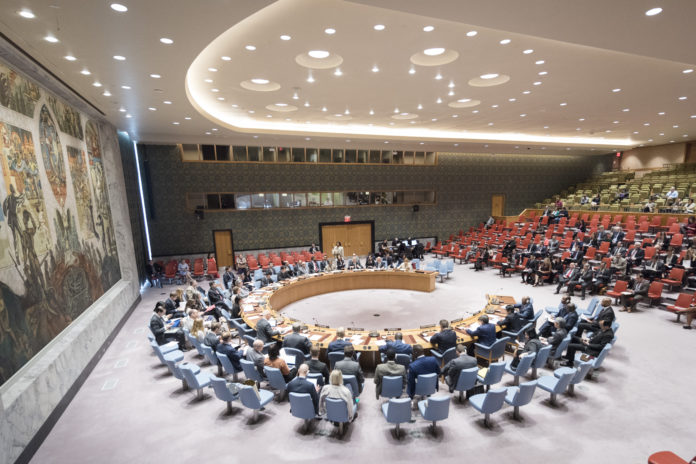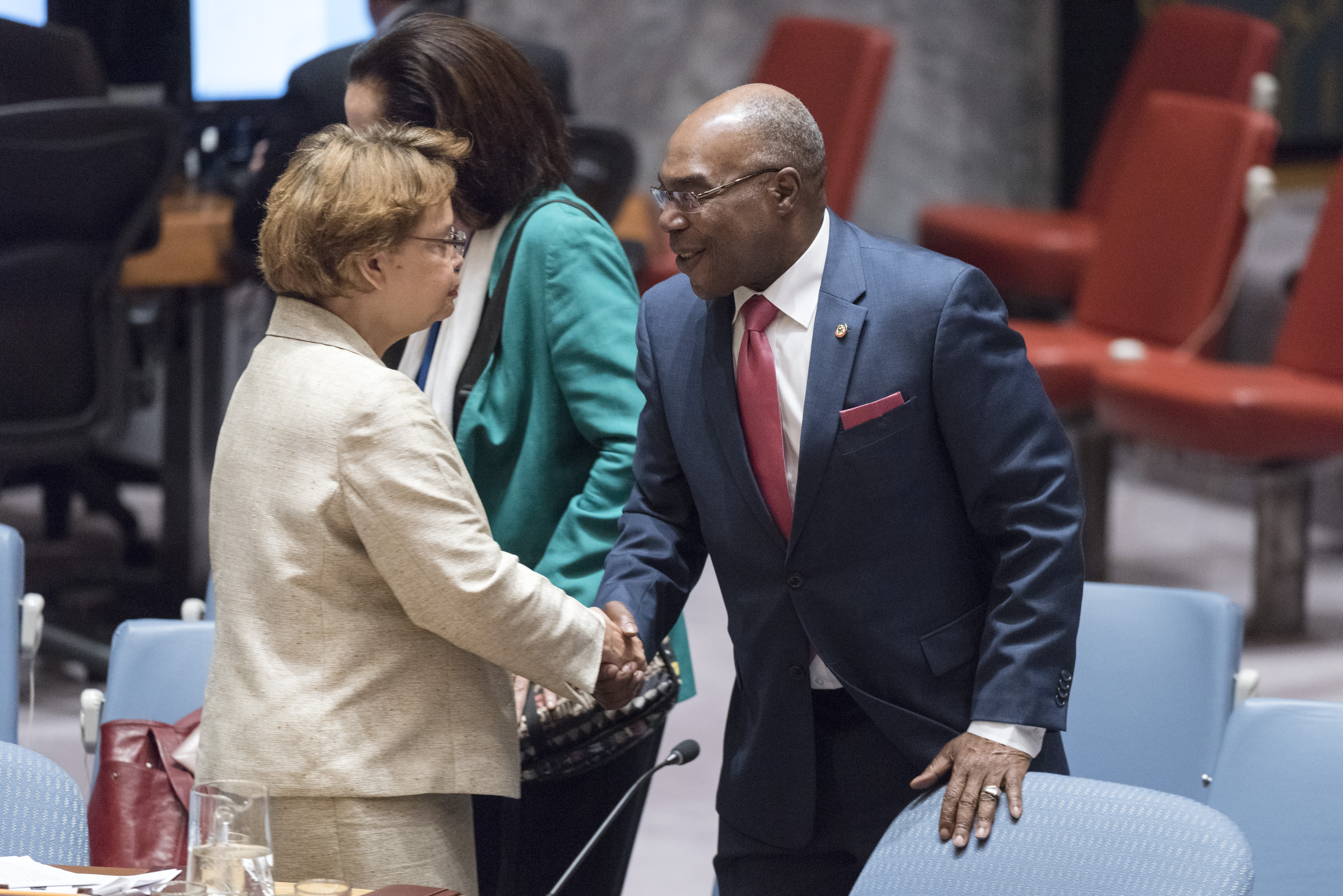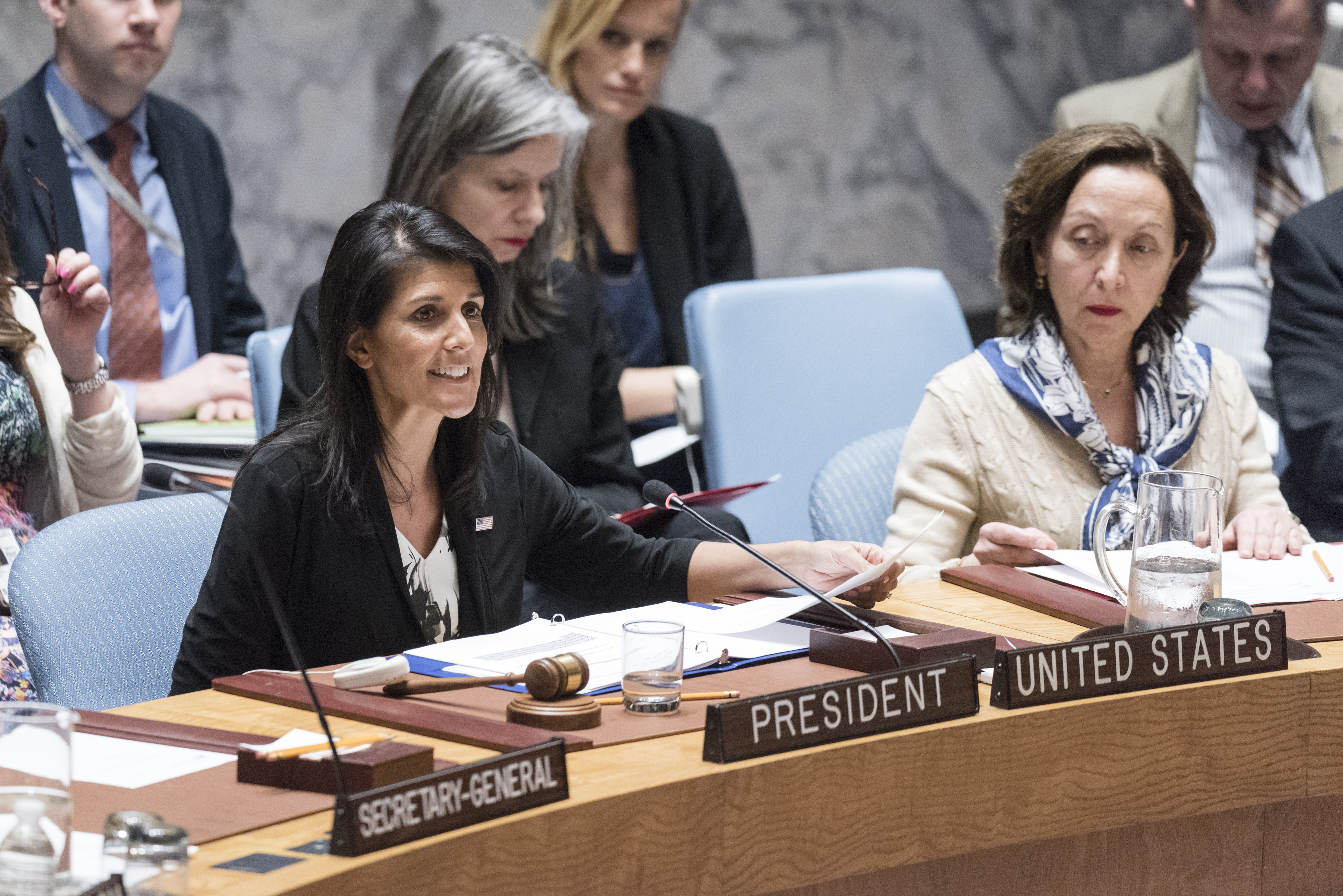
The main thing you need to know about the Apr. 11 speech to the UN Security Council of Sandra Honoré, the head of the United Nations military occupation force in Haiti, is that she is not talking about a complete pull-out but a “transition.”
MINUSTAH, or the UN Mission to Stabilize Haiti, is currently composed of about 3,200 soldiers and police officers, who cost $346 million this past year. First deployed in June 2004 (supposedly for only six months), the force’s current mandate ends on Apr. 15.
In a Mar. 16 report, UN Secretary General Antonio Guterres proposed that MINUSTAH be renewed for a final six-month mandate, ending Oct. 15. However, this force would be replaced by “a smaller peacekeeping operation with concentrated focus on the rule of law and police development,…[and] human rights monitoring,” Honoré said.
The new armed force would be comprised of close to 300 UN police officers to “support political stability, [and] good governance, including electoral oversight and reform,” Guterres wrote.
Thus Honoré called on the Security Council to set in place “the transition from MINUSTAH to a new and smaller Mission,” which will have a new name. [Since the original version of this article, the new name has been announced: United Nations Mission for Justice Support in Haiti (MINUJUSTH).]
There is only one problem. Other than the Haitian Army and Police, the Haitian Constitution explicitly forbids any “other armed corps [to] exist in the national territory.”
But Honoré ignored this illegality and spoke as if she were Haiti’s head of state, brazenly dictating Haiti’s direction. “The United Nations in Haiti look forward to intensifying our cooperation with all Haitian stakeholders as they identify and implement [their] national priorities,” Honoré said. “I am also encouraged by the calls from a broad cross-section of Haitian society for constitutional reform to, among other things, simplify the electoral cycle and strengthen legal oversight bodies with a view to stabilizing the country’s democratic institutions and reforming its governance.”

The UN is supposed to only militarily and politically intervene in conflicts between states to maintain “international security,” not in member states’ internal affairs. In this respect, MINUSTAH, like its proposed successor, violates the UN Charter’s principles guaranteeing non-intervention in national matters.
Some Security Council members alluded to this problem. Bolivia, for example, said that the new mission should act “in consultation and coordination with the new government” and “must always take into account [Haitian] priorities and consider that the Republic of Haiti must be the sole and main author of its destiny, without any interference.” Bolivia said it would continue to assist Haiti along with allies in the anti-imperialist Bolivarian Alliance for the Peoples of Our America (ALBA) “in accordance with [Haitian] government priorities and in full respect for its sovereignty and territorial integrity.”
Bolivia will also assume the monthly rotating Security Council presidency in June, at which point it “plans a conduct a visit to Haiti so that the Council can have a first hand view of this situation in Haiti.”
Venezuela, another ALBA member, also made oblique critiques of the UN role in Haiti saying that “we have to reflect on the effectiveness of the UN’s peacekeeping operations.”
“This security council must also be aware that it has made mistakes, and we must question the preeminence of a security-based vision and the fact that we have ignored the need to strengthen the Haitian state’s institutions,” Venezuela’s representative Rafael Ramirez said. Instead, “we must focus on a social development agenda, especially when it comes to eradicating poverty and reducing inequalities.”
Repeatedly and pointedly, Venezuela urged countries to aid Haiti “unconditionally and without any type of political pressure.”
“The close of MINUSTAH must point to the beginning of a new phase of political stability in Haiti and the end of military interventions geared towards security in Latin America and the Caribbean,” Ramirez said. “The people of Haiti are dignified and brave and deserve unconditional cooperation, and this is the only kind of cooperation that can allow Haiti to sovereignly determine its own destiny.”

In contrast, Nikki Haley, the U.S. Ambassador to the UN and April’s Security Council president, took an opposite tack. “Peacekeeping has made a great contribution to Haiti,” she said. “Its support of the government has been essential in ensuring a secure and stable environment. It has also provided invaluable assistance in aiding the Haitian people in recovering from a number of natural disasters, including the 2010 earthquake and Hurricane Matthew.”
She never mentioned that MINUSTAH caused one of Haiti’s worst disasters, the still-raging cholera epidemic. In October 2010, the UN allowed sewage from its cholera-infected Nepalese troops to pollute Haiti’s largest river, sparking an epidemic which, by some estimates, has killed 10,000 and sickened one million.
Haiti’s permanent representative, Denis Régis, was invited to speak at the Security Council meeting but unfortunately made a completely vapid speech offering no push-back on the UN’s plan to keep an armed force of police officers in Haiti indefinitely after MINUSTAH’s withdrawal. On the contrary, he said that Haiti “supports the establishment of a new presence” and the “Haitian government endorses this [UN] vision and will continue to work in close collaboration with the United Nations.”
Régis spent the last half of his speech pleading with United Nations member states to “relaunch mechanisms of humanitarian aid” to Haiti to help with the post-Hurricane Matthew famine in Haiti’s southern peninsula and the on-going cholera crisis.
After partially admitting in December it unleashed cholera in Haiti, the UN has launched a campaign to raise $400 million over two years to eradicate cholera in Haiti. So far, only $2 million has been pledged. Haiti should point to the $346 million wasted in the last year to pay for UN soldiers who spend most of their time cloistered in heavily fortified bases, occasionally making pointless “show-of-force” sorties in huge armored vehicles.
On Mar. 29, the 30th anniversary of Haiti’s Constitution, cholera victims and anti-MINUSTAH activists marched through the capital to demand reparations for the damage caused by cholera and the complete and immediate withdrawal of UN armed forces, including police. The UN’s current plans, supported by the government of President Jovenel Moïse, defy these demands, which most Haitians support.
Other nations who spoke at the Apr. 11 Security Council session on Haiti include the United Kingdom, Uruguay, Ethiopia, France, Kazakhstan, Egypt, the Russian Federation, Italy, Sweden, Japan, Ukraine, Senegal, China, Brazil, Spain, Colombia, Argentina, the European Union, Guatemala, Canada, Chile, Mexico, and Peru.









